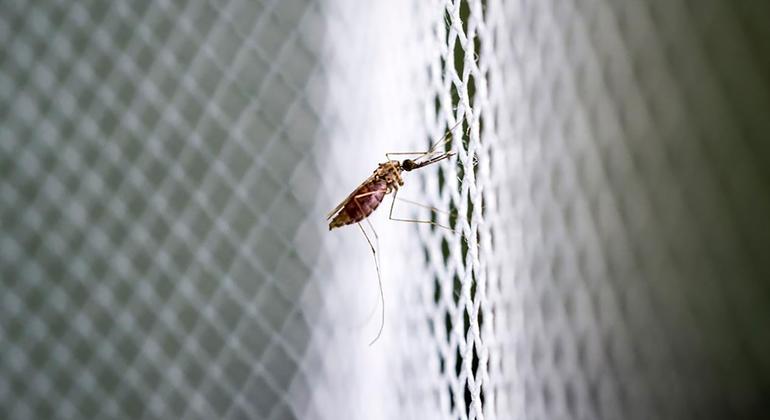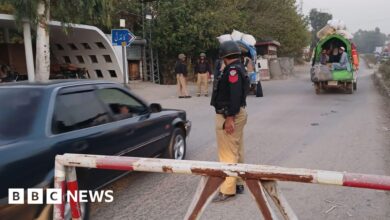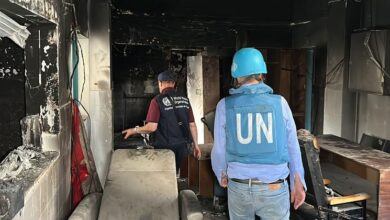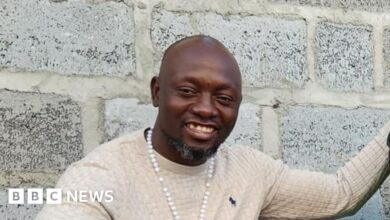World news summary: Egypt no longer has malaria, tropical storm hits Cuba, killings in Mozambique, WHO aids South Sudan


“Malaria is as old as Egyptian civilization itself, but the disease that afflicted the pharaohs now belongs to their history, not their future,” said Tedros Adhanom-Ghebreyesus. WHO General Director.
“This certification by Egypt of being malaria-free is truly historic and is a testament to the commitment of the Egyptian people and Government to eliminating this ancient scourge.”
Egypt’s success story represents an important victory in the global fight against malaria, especially for a country with a population of more than 100 million people.
The list is growing
In the WHO Eastern Mediterranean region, Egypt became the third country to receive this certification, after the United Arab Emirates and Morocco.
Egypt joins a group of 44 countries and one territory worldwide that have achieved this status.
Tedros emphasized the broader significance of this achievement.
“I congratulate Egypt on this achievement, which is an inspiration to other countries in the region and shows what can be done with the right resources and tools.”
The UN is ready to support Cuba when millions of people lose power
United Nations National team in Cuba stands ready to support the Caribbean nation and mobilize technical assistance amid reports of rolling power outages and a slow-moving tropical storm that threatens flooding in both urban and rural areas.
Cuba’s power grid reportedly went offline on Friday after weeks of blackouts, leaving about 10 million people without electricity. As of Monday, there had been three other crashes, all caused by Tropical Storm Oscar, which made landfall on Sunday.
According to news reports, the Cuban government said the weeks of worsening power outages were due to infrastructure problems, fuel shortages and increased demand, along with the effects of the ban. US trade and Cuba’s inability to purchase replacement parts for Cuban fuel oil. factory due to economic sanctions.
Heavy rain
“The strong but slow-moving storm has produced significant rainfall in eastern and central Cuba over the past few days,” United Nations deputy spokesman Farhan Haq said at a regular news conference in New York on Monday. ”.
“The slow movement of the storm at a speed of only 4 km/h will make the situation more complicated with more rain and the risk of flooding in the coming hours.”
He said the United Nations is aware of the ongoing shutdown and that under the leadership of Cuba Resident Coordinator Francisco Pichon, “we stand ready to assist and mobilize technical assistance if needed. The UN emergency technical team has been activated and is in contact with in-country partners.”
The storm is also affecting the Bahamas, where the United Nations is working with local and regional authorities to respond as needed, Haq said.
Guterres called for a swift investigation into the killing of opposition figures in Mozambique
UN Secretary General António Guterres Have call for calm in Mozambique following the killing of two opposition figures amid a dispute over elections held earlier this month.
Elvino Dias, legal advisor to presidential candidate Venâncio Mondlane, and Paulo Guambe, legal representative of the PODEMOS political party, were shot dead in the capital Maputo on Friday evening.
PODEMOS rejected provisional results of the October 9 presidential election that showed the FRELIMO party, which has ruled Mozambique for nearly 50 years, in the lead.
Secretary-General Guterres called on authorities to quickly investigate the murder and bring the perpetrators to justice.
He called on all Mozambicans, including political leaders and their supporters, to remain calm, exercise restraint and reject all forms of violence before the official announcement of the election results.
He also reaffirmed the United Nations’ steadfast support for peace and stability in Mozambique during this important period of the country’s history.
WHO supports South Sudan amid severe floods
The World Health Organization (WHO) is working with authorities and partners in South Sudan as the country faces some of the worst floods in decades, affecting 42 out of 78 districts and affecting about 890,000 people.
The WHO said that while heavy rains during the April to November rainy season often cause floods, they are becoming increasingly severe due to climate change.
To date, more than 226,000 people have been displaced, and roads and key infrastructure have been submerged. This includes 58 health facilities, while nearly 90 others are inaccessible.
The floods have aggravated an already dire humanitarian situation in the country, which is hosting nearly 800,000 refugees and returnees fleeing war in neighboring Sudan.
Most refugees and returnees pass through the Renk district in Upper Nile state, where two suspected cases of cholera were detected. Meanwhile, malaria is on the rise, with more than 120,000 suspected cases and 31 deaths as of the end of September.
WHO distributed approximately 88 tons of emergency medical kits to Renk and other key locations to support flood-affected communities. These kits can treat more than 870,000 people and include vital medical supplies such as cholera treatment and anti-malaria drugs.




